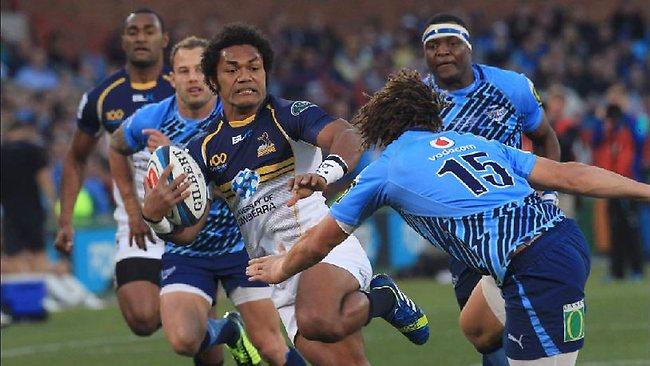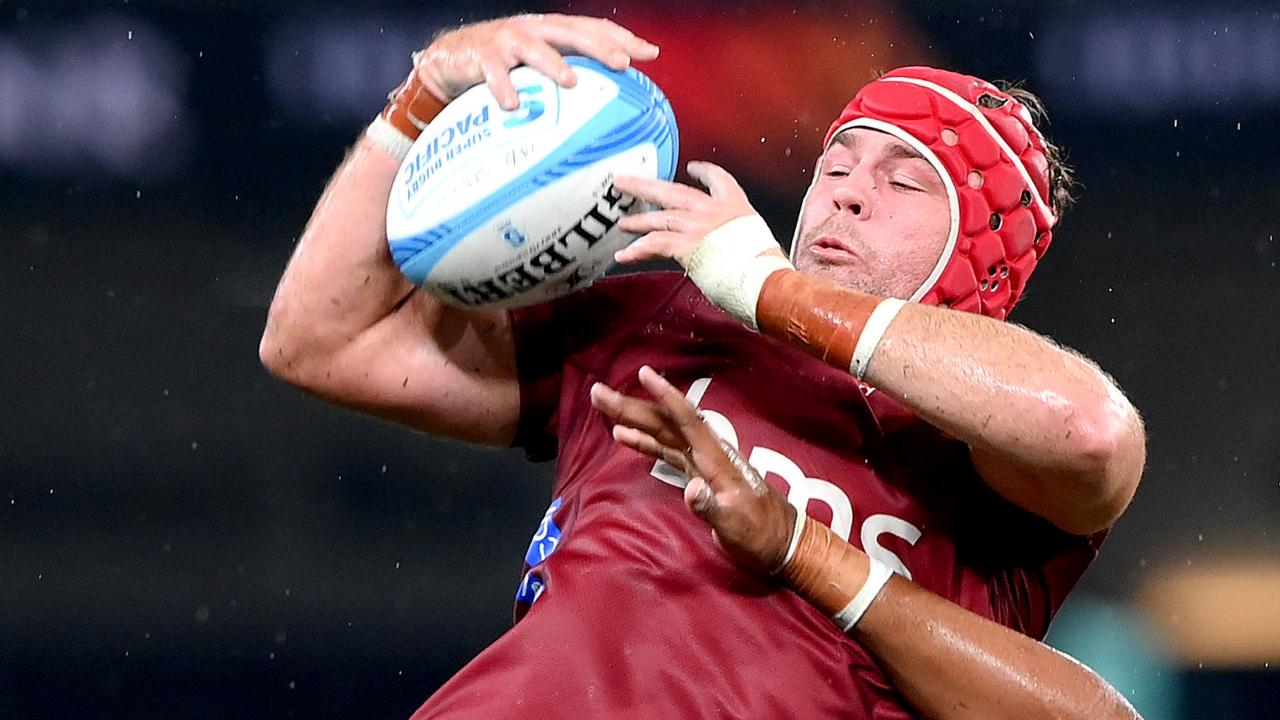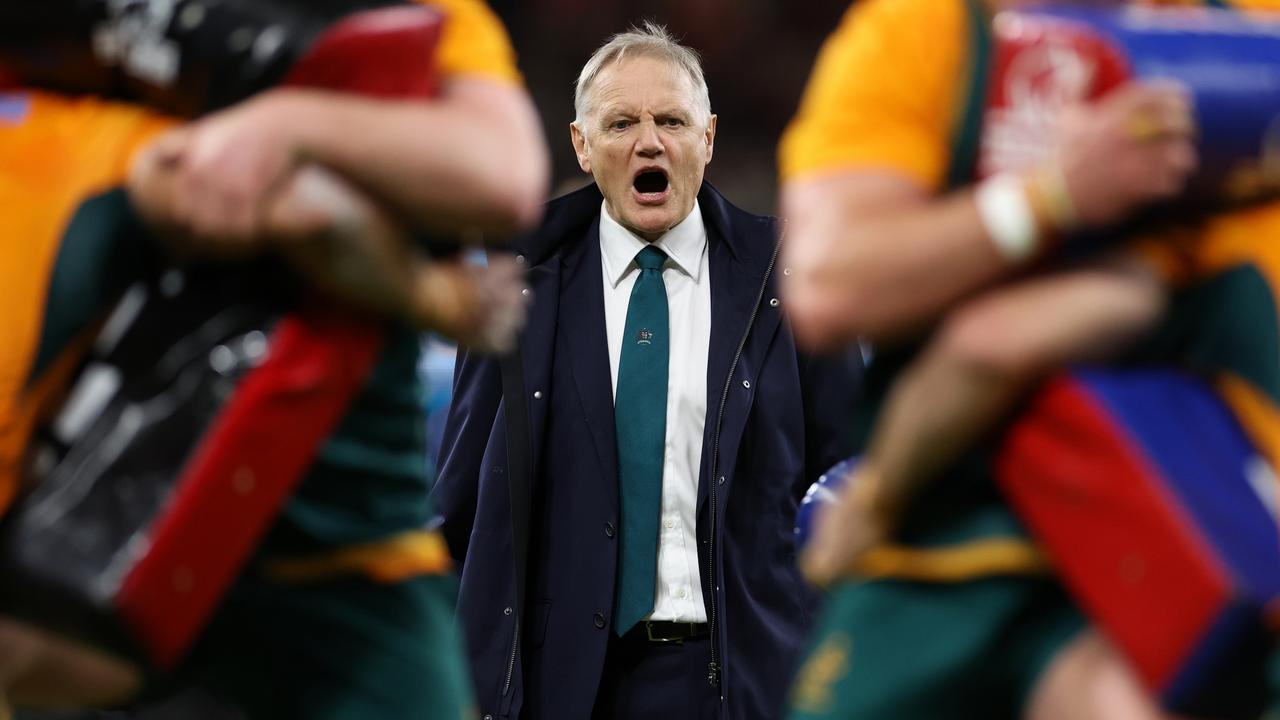Super Rugby favours two conferenc model from 2016 to accomodate sixth South African team
SPLITTING Super Rugby into two conferences from 2016 onwards is now the “front-runner" competition model.

Rugby
Don't miss out on the headlines from Rugby. Followed categories will be added to My News.
SPLITTING Super Rugby into two conferences from 2016 onwards is now the “front-runner" competition model following a SANZAR decision to include a sixth team from South Africa.
The move, which appears likely to be followed by the inclusion of teams from Argentina and Asia, was made at a high-powered meeting of rugby officials from Australia, New Zealand and South Africa - and respective broadcasters - in Sydney this week.
The competition model to accommodate unspecified expansion has yet to be nailed down but while New Zealand hasn’t ruled out adding an extra team, the ARU says it has no interest in adding any more teams.
SANZAR chief executive Greg Peters said getting a sixth team had been a “long-held desire" by the South African Rugby Union, for both rugby and political reasons.
The Eastern Cape-based Southern Kings were introduced this year at the expense of the Lions but will be out of Super Rugby again next year after losing a promotion-relegation match to the Johannesburg franchise.
“For some time now we have been working to accommodate that desire that South Africa has had for a number of years, and it has been one of the fundamental cornerstones for our planning to accommodate a sixth team in that country," Peters said.
“We have undertaken that the future Super Rugby would have six teams out of South Africa in whatever model we finally settle on."
The difficulty now comes in settling on a new tournament structure to accommodate the sixth African side. Super Rugby currently has three pools of five teams from each SANZAR nation.
Sources say SANZAR members and broadcasters have been locked in challenging discussions to come up with a suitable format, with two conferences of Australia-New Zealand and South Africa-Argentina — and a joint finals series - the likely end point.
Asked if locking in a sixth South African side before settling on a competition model was premature, Peters said: “It was either that, or we wouldn’t have South Africa in the equation."
Peters clarified there was no threat from SARU to withdraw from SANZAR, but the decision was based on a willingness to accommodate South Africa’s unique “imperatives".
“It was of that much importance to them, and in a joint venture, there is always compromise. Our vision statement is we want to run the best competitions in the world, but in a manner that enhances rugby in the three territories," Peters said.
“So when we have one of our territories saying we have something that’s pretty fundamental as a strategic imperative, not only as a rugby imperative but as a political imperative, in a joint venture you have to take notice of that."
“We want to accommodate them, and want all three countries to stay together. To that extent we have listened to a long-held viewpoint, for very vaild reasons. They had five strong franchises and they also wanted to involve the south-east cape, where there is 32 per cent of the player population and 77 per cent of those are coloured. That’s where the political imperative comes in."
New tournament models are being kicked around by stakeholders and Peters said the two conference model was a strong chance, particularly with a South African conference the logical option geographically to include an Argentinian side.
“That leads you down a path that certainly has the two-conference model as a front-runner, with a finals series that create cross-over," Peters said. “Those are the sort of parameters we are talking to our broadcasters to at the moment."
The competition will not have any more weeks or games than the current tournament, Peters said.
An Australian and New Zealand conference could be a 10-team competition, or include a sixth Kiwi outfit and a Japanese side. The latter option would presumably help offset any drop-off in broadcast revenue for the ARU and NZRU, should South Africa’s strong pulling power in negotiations be lost.
“The fundamental desire is to keep the three countries together and playing in the southern hemisphere’s pre-eminent provincial competition," Peters said.


